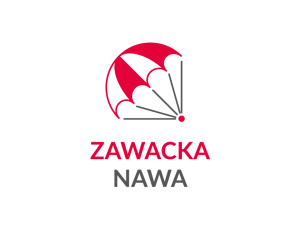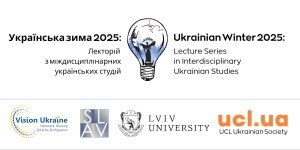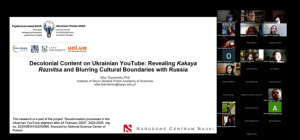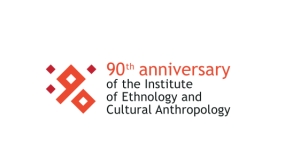

We invite you to a scientific seminar organized by the Institute of Ethnology and Cultural Anthropology of the University of Warsaw and the Institute of Slavic Studies of the Polish Academy of Sciences. The event will take place on May 21, 2025 at 10:30 a.m. at the Institute of Ethnology and Cultural Anthropology of the University of Warsaw (Warsaw, Żurawia 4, room 108).
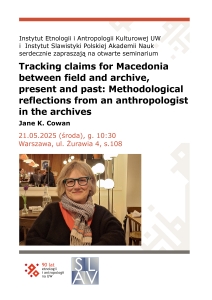 During the meeting, anthropologist Jane K. Cowan (University of Sussex) will give a lecture entitled “Tracking Claims for Macedonia between Field and Archive, Present and Past: Methodological Reflections from an Anthropologist in the Archives”.
During the meeting, anthropologist Jane K. Cowan (University of Sussex) will give a lecture entitled “Tracking Claims for Macedonia between Field and Archive, Present and Past: Methodological Reflections from an Anthropologist in the Archives”.
The seminar will be held in English.
Live streaming will be available on the YouTube channel: https://www.youtube.com/channel/UCtU-Bl_H13aial5u-nF4eCw?app=desktop
Description:
Starting in 1983, I carried out anthropological research on the performance of gender in social dancing in the small market town of Sohos in the contested region of Macedonia that became part of Greece’s “New Lands” in 1912. The majority of Sohoians were Greek-identified but bilingual (currently Greek-speaking but in the past, primarily speakers of a Bulgarian dialect). Over the twentieth century, the complicated position of such “ambiguous” persons within dominant national narratives of Greece’s ethnic “homogeneity” had given rise to trauma, silenced histories, accommodations and new identifications. In the late 1980s and early 1990s, the region saw the re-emergence of claims for Macedonian minority rights and recognition. Yet most Sohoians distanced themselves from such claims, insisting “we are not a minority!” Discussing with a Greek historian the historical formation of Sohoian identities in this post-Ottoman, now Greek border region, he suggested that I visit the League of Nations Archives in Geneva: there, I might discover whether any Sohoian families had participated in the “voluntary and reciprocal” emigration agreed between Greece and Bulgaria at Neuilly in 1919. After two weeks in the archives in September 1996, I developed a research project that grappled with Western Europeans’ involvement in the formulation of new ‘regimes of difference’ within Balkan and East European states and in the international supervision of the minorities treaties those “Minority States” had been compelled to sign, as well as the responses of minorities and their champions through petitions.
In this presentation, I will speak as “an anthropologist in the archives”: tracing my research trajectory to the archives and describing what I “saw” there with my anthropologically-trained eyes. As in ethnographic fieldwork, my archival research started with some well-developed theoretical questions, then proceeded with a willingness to be diverted if the empirical data “surprised” me. The latest phase of my research was prompted by such a surprise, when I found a file of petitions revealing collaborations between Bulgarian and international women’s organisations regarding demands for protections for Macedonian minorities. That led me to the Women’s International League for Peace and Freedom (WILPF) archives; I am currently exploring interwar collaborations—variably friendly, fraught and conflictual– between mostly North European and North American WILPF activists and the female leadership of women’s organizations in Bulgaria, Yugoslavia and Greece, particularly around questions of minorities and Macedonia. My talk will explore the role of serendipity, surprises and the importance of following the question(s), and the evidence, wherever they lead, moving (when necessary) between the field and the archive.
Biography:
Jane K. Cowan is professor emeritus of anthropology at the University of Sussex. A specialist of Greece, Cowan’s early work investigated gender, dance, sociability and embodiment, based on fieldwork in northern Greece. Since the late 1990s, with a focus on the region and “question” of Macedonia, she has explored the nexus of rights claiming and international supervision. Her work spans investigations of minority petitioning to the League of Nations’ Minorities Section and, with Julie Billaud, contemporary human rights auditing at the Universal Periodic Review. Most recently, she is researching the Women’s International League for Peace and Freedom (WILPF): specifically, transnational collaborations between WILPF and leaders of women’s organizations in the Balkans concerning minorities and the Macedonian Question. She recently completed her term as President of the Society for the Anthropology of Europe (2022 –2024).
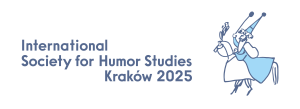
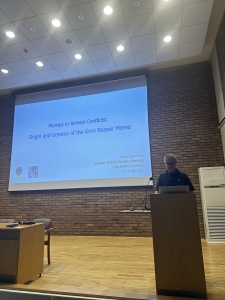


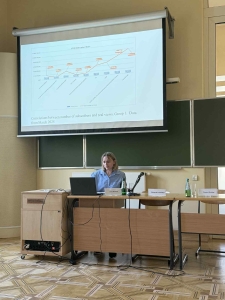
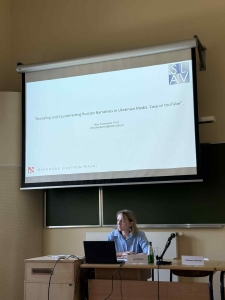


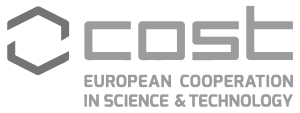
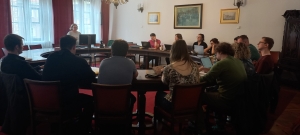
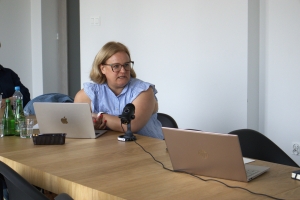
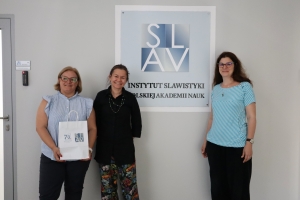
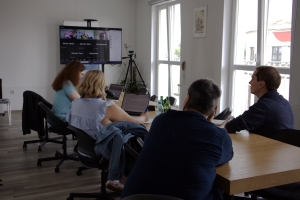
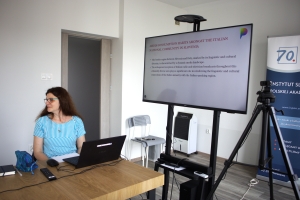


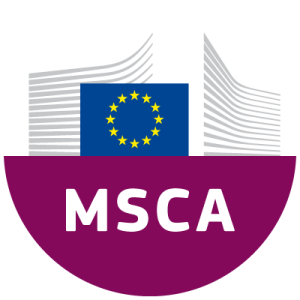
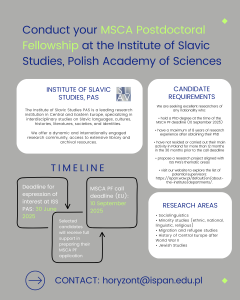


 During the meeting, anthropologist Jane K. Cowan (University of Sussex) will give a lecture entitled “Tracking Claims for Macedonia between Field and Archive, Present and Past: Methodological Reflections from an Anthropologist in the Archives”.
During the meeting, anthropologist Jane K. Cowan (University of Sussex) will give a lecture entitled “Tracking Claims for Macedonia between Field and Archive, Present and Past: Methodological Reflections from an Anthropologist in the Archives”.